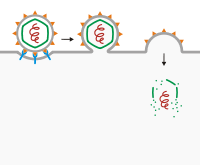Address:
20 Park Plaza, Suite 804
Boston, MA 02116
978-888-7999
Address:
20 Park Plaza, Suite 804
Boston, MA 02116
978-888-7999

The statin drugs, such as Lipitor, Crestor, etc. reduce the severity of SARS-COV-2 (coronavirus) infections. In three separate studies, one in Malaysia and two at the University of California at San Diego, early evidence demonstrates that those taking statin medications prior to SARS-COV-2 infection have less severe illnesses and shorter hospitalization.
Theoretically, a statin drug could have positive or negative effects on the outcome of SARS-COV-2 ’s disease. Kow and Hasan, from the International Medical University, Malaysia, analyzed 8990 case records. All patients were admitted to intensive care units with a diagnosis of severe SARS-COV-2 pneumonia. Those taking statins had a 30% reduction in fatal or severe disease. No statin-related adverse outcomes were identified.
Those taking statins had a 30% reduction in fatal or severe disease. Share on X
These pooled studies are limited to top-line data common to all papers. Many pertinent factors (obesity, underlying conditions) are excluded, so, there is a lack of detail. These studies are pathfinders and are not designed to provide answers to “why” or “how.” (AJC 8/11/2020).
Laurie Daniels, MD, a Harvard educated cardiologist and Director of the Cardiovascular Intensive Care Unit at UC San Diego, took the complete electronic medical records of 170 SARS-COV-2 hospitalized patients and compared them to 5,281 COVID-negative hospitalized patients. Dr. Daniels and her staff could compare multiple outcome measures to various medications and medical conditions because they had an enormous depth of data on each patient.
“We found that statins are not only safe but potentially protective against a severe SARS-COV-2 infection,” said Dr. Daniels.
Statin use before hospital admission for SARS-COV-2 was associated with a more than 50 percent reduction in risk of developing severe SARS-COV-2, compared to those with SARS-COV-2 but not taking statins. Patients with SARS-COV-2 who took statins before hospitalization had hospital stays that were 50% fewer days than the non-statin patients.
Patients with SARS-COV-2 who took statins before hospitalization had hospital stays that were 50% fewer days than the non-statin patients. Share on X
Dr. Daniels considers statins as a potential agent to block the catastrophic immune cascade of inflammatory enzymes, which produces the SARS-COV-2 storm that diffusely attacks all our organs. Statin anti-inflammatory effects include lowering LDL cholesterol, stabilizing inflamed artery walls, reducing pneumonia mortality, and reducing inflammation in auto-immune disorders such as rheumatoid arthritis. One hundred seventy patients are too few for firm conclusions, but with further SARS-COV-2 studies, statin-induced SARS-COV-2 immune-modulation may become a standard part of treatment. Many questions remain, such as which statin at which dose worked best, etc.

Dr. Daniels second hypothesis is that SARS-COV-2 requires a cholesterol-rich cell wall to unite with the cell and transmit its viral RNA. Statins, while having their most pronounced effect on artery walls. also reduce cholesterol in cell walls throughout the body.
Dr. Daniels observed that:
“statins specifically may inhibit SARS-CoV-2 infection through their known anti-inflammatory effects and binding capabilities as that could potentially stop the progression of the virus.”
At the same time Dr. Daniels’ team was publishing their clinical observation, a team of geneticists were publishing a mechanism by which statin drugs could activate a protective enzyme found in most human cells.
Dr. Tariq Rana, Ph.D., Chief of the Division of Pediatric Genetics, further strengthened the cholesterol-depletion theory with research published online through EMBO (the European Molecular Biology Organization). His team determined which genes are switched “on” in human lung cells in response to SARS-CoV-2 infection. “CH25H encodes an enzyme that modifies cholesterol. CH25H blocks HIV, Zika, and a few other viruses. We know that virus’s ability to enter human cells.
“I got excited because CH25H was blazing hot,” said Dr. Rana.
No matter which way they came at it, added 25HC inhibited the ability of the virus to enter cells — blocking infection almost completely. “The difference between untreated cells and those treated with 25HC was like day and night,” Rana said.
No matter which way they came at it, added 25HC inhibited the ability of the virus to enter cells blocking infection almost completely. “The difference between untreated cells and those treated with 25HC was like day and night,” Rana said.
This is science on the march. Knowledge and intuition shared without boundaries. It’s not a step-by-step process; it is hundreds of researchers and physicians, simultaneously contributing pieces to a puzzle that each sees through the lens of their disciplines.